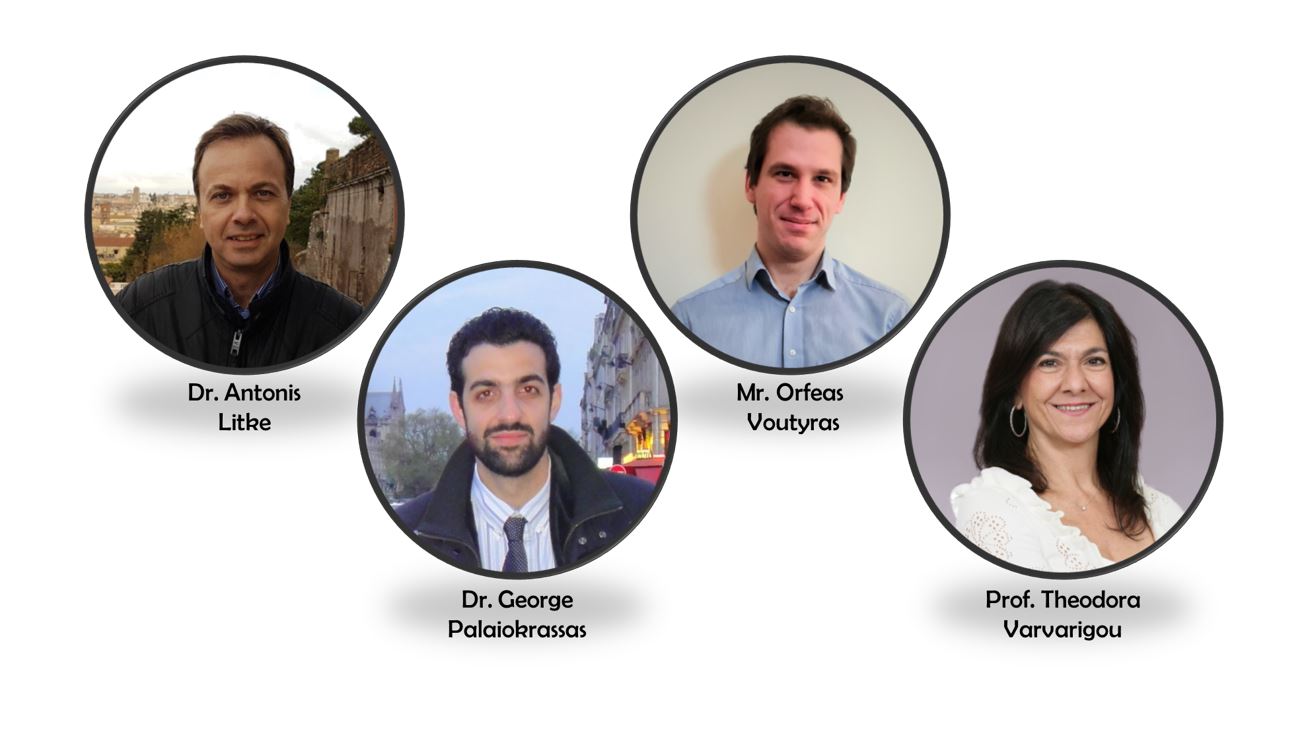For more than 2 years, ICCS/NTUA has been a key member of the M-Sec consortium, supporting the development and testing of a technology that intends to support our cities to become smarter and, at the same time, more cyber secure. Meet the team and work behind ICCS/NTUA, their role in the M-Sec Project and where will they go next
We spoke with Orfeas Voutyras, Research Associate, to know more about ICCS/NTUA‘s role in the Project.
1. Orfeas, thank you so much for agreeing with this interview. Please briefly present yourself and the institution you work at.
I am a PhD candidate at the Department of Electrical and Computer Engineering (ECE) of the National Technical University of Athens (NTUA) and for the past 7 years I have been working as a Research Associate and Software Engineer at the Institute of Communications and Computer Systems (ICCS). I have participated in several EU-funded R&D projects (e.g., COSMOS, BigClouT, M-Sec, Pledger) as a systems architect or as a developer. My research interests include Internet of Things, Artificial Intelligence, and Social Networks
2. Why have you and ICCS/NTUA decided to join the M-Sec Project?
NTUA is the oldest and most prestigious technical university in Greece. Founded in 1837, it has since been contributing to the progress of the engineering science in Greece. NTUA comprises nine departments focusing on different engineering fields, with ECE being one of them. ICCS is a research organisation associated with the School of ECE and has about 40 laboratories and research units.
The Distributed, Knowledge and Media Systems Group (DKMS), is a research laboratory operating under ICCS, and represents ICCS in M-Sec. The laboratory is conducting research in Advanced Distributed Computing (dealing with topics such as Service Oriented Architectures, Cloud Computing, and Internet of Things), and Knowledge, Media & Digital Art (dealing with topics such as Social Analytics, Knowledge Representation and Domain Modelling, Artificial Intelligence and Decision Support Systems).
The high-level objective of our team within the context of M-Sec is to enable an open and dependable ecosystem of Smart City data-providers and consumers which would operate in a reliable, sustainable, and, most importantly, secure manner. Our vision is for this ecosystem to, eventually, give rise to a strengthened European and Japan ICT industry and academia able to meet key societal and economical needs.
From a more practical point of view, we are focusing on innovation related to the design and development of an IoT Marketplace that will match the supply and demand of Smart City datasets. To that end, we are focusing on providing a permissioned blockchain infrastructures for facilitating several use cases, as well as the corresponding supporting middleware that can enhance the marketplace with several capabilities through the use of security and trust mechanisms, and smart contracts.
Personally, my main interest was on working on the architecture and design of a primarily security-focused project, such as M-Sec, so as to get the chance to study, identify, and work on requirements, methodologies, tools, and policies related to this sector, always under the domain of Smart Cities applications. Identifying ways through which blockchain technologies could be coupled with e.g., encrypted databases or trust & reputation models was also something I considered worth investigating.
3. Can you also present the team that works with you for the M-Sec Project?
The DKMS team has demonstrated extensive research activity and significant experience in the relevant fields of M-Sec. The team consists of researchers, students (graduate and undergrads) and staff. The core team currently working on M-Sec is composed of me and my colleagues Dr. Antonis Litke and Dr. George Palaiokrassas, also supported and supervised by Prof. Theodora Varvarigou.
Dr. Antonis Litke has more than 17 years of experience as a professional IT engineer, has held the positions of Operations Director, Technical Manager, Project Manager and Software Engineer in various companies and for large scale projects, and has as primary research interests cloud computing, parallel and distributed computing, Service Oriented Architectures and information & knowledge engineering. Georgios Palaiokrassas has been working as a Research Associate and Software Engineer ICCS since 2013 and has participated in numerous EU-funded projects, while his research interests include cloud computing, machine learning, social networks, IoT and smart contracts. Finally, Prof. Theodora Varvarigou has great experience in the area of semantic web technologies, scheduling over distributed platforms, embedded systems and Cloud computing, has published more than 250 papers in leading journals and conferences, and has participated to and co-ordinated numerous EC projects.
4. What has been the main role of ICCS/NTUA at the M-Sec Project and have you been able to achieve all you have set for? What were your and your team’s main challenges?
ICCS/NTUA acts as the Technical Coordinator of the project, having significant experience in this role and for many years. Regarding our Research and Innovation actions involvement per se, our team is involved in the WP3 of the project with respect to leading the requirements analysis phase and the specification of the M-Sec architecture. In WP4, our team leverages its extensive experience in cloud resource optimization and service level agreement management, cloud security, as well as P2P and blockchain implementation, and lead Task 4.3.
We are happy to announce that all of our primary goals set within the context of the project (both as Technical Coordinators, but also as members of the M-Sec team) have been completely covered! The M-Sec IoT Marketplace is up and running, with its supporting features also available and at a good level of implementation.
The main challenges we faced were, on the one hand to extract an innovative multi-layered security architecture aligned with the scope of the project, and on the other hand to integrate our security components with those of other partners, so as we achieve a final and complete system characterized by end-to-end security.
5. Looking back on what you and your team have done in the scope of the M-Sec Project, what are your main takeaways?
Security is no stronger than its weakest link. Although our team has extensive experience in cloud security and blockchain technologies, it was through M-Sec that we studied and worked for the first time on a real end-to-end security problem within the context of Smart Cities, starting from the Devices level, moving up to the Middleware and Cloud layer, and finishing with the Applications later. Through our communication and collaboration with partners across EU and Japan, both from the industrial and the academic sectors, we conducted research on a number of security threats and the corresponding requirements, and even got experience on security and privacy related policies.
6. With only a few days until the end of the project, on what major developments do you and your team still need to focus? Do you feel confident?
The major design, development, and integration work from our side (and of the whole M-Sec team too) has been finalized. Our primary focus is on the M-Sec pilots, the evaluation of the project results, and of course their communication to the public and the academia. To that end, we are still working in related activities, such as a workshop to take place in October.
7. Did you find this experience of participating in an EU-JP partnership rewarding?
As a matter of fact, this is the second time our team is participating in an EU-Japan collaborative project, so this already answers the question! A few years ago, we had the chance to work on another project focusing on Smart City applications (the BigClouT project). That’s where we also met for the first time some of the partners of the M-Sec consortium.
We have learnt a lot from collaborating with Japanese partners on a human level (finding common hours for teleconferences is one of the hardships due to the time-difference!), a technological level (e.g., learning about innovative solutions in Japanese Smart Cities), and a policies level (e.g., getting to know about Japan’s Act on Protection of Personal Information ‘ APPI, the Japanese GDPR!).
The vision of our team hasn’t changed, but our horizons have certainly been expanded. Even as we speak, we are working on reusing and extending the blockchain and IoT Marketplace solutions we have developed, as well as on ensuring the communication of the corresponding scientific results to the community. Something we will certainly work on extending is our Blockchain middleware, as well as our Trust & Reputation engine.


